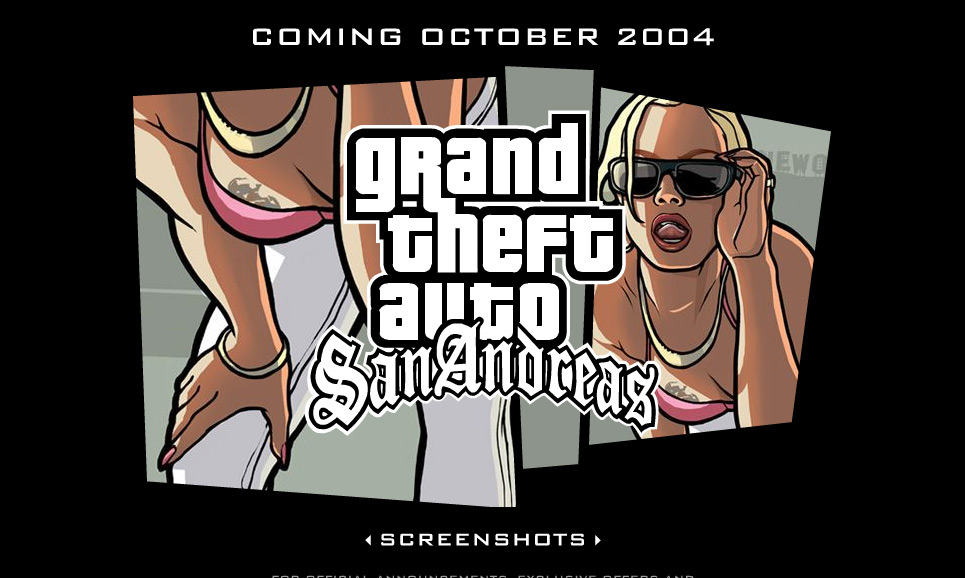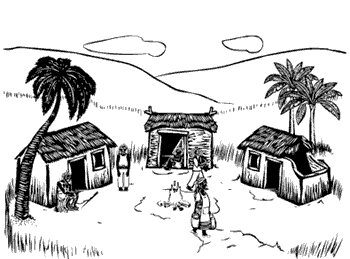
University of Denver
School of Art & Art History
Electronic Media Arts & Design
Rafael A. Fajardo
Winter 2005
Rafael Fajardo [version 1.5 list]
Miguel Angel Tarango [comments and additions]
Kelly Monico [comments and additions]
Jennifer Kiesel [comments and additions]
Matthew Benjamin Jenkins [comments and additions]
Here are the links that I found during the quarter. I do not have any major criticisms of the categories of version 1.0, but I can offer some contemplations. I think that discussing video games and consciousness warrants an in depth investigation into the discourse of consciousness currently taking place in the humanities as well as the fine arts. Such an investigation could accomplish three things -
1. It would help the emerging discourse and practice of "videogame-consciousness" map out its own terrain and identity away from conversations of consciousness in other fields.
2. It would find useful sources in other fields (such as gender studies, cultural studies, etc.) that would enable videogame scholars/designers to make interdisciplinary/historical/cross cultural connections.
3. Videogame scholars/designers can shape the critical inquiry into "consciousness" in all fields.
Indeed, this is already happening. A good example is the work of Mateo Bittanti and Gonzalo Frasca whom I reviewed this quarter. If I imagine version 1.0 evolving into a book, I begin to visualize a series of chapters that begin discussions on their topics in the field of socially conscious video games. For example, a chapter on gender and videogames need not provide "all the answers", but should instead use a method of critical inquiry to raise a set of problematics that videogame scholars can engage with as they also expand and contribute to the field with their own work. Indeed, a chapter on gender and videogames warrants a chapter on race and videogames, class and videogames, and on down the line. Yet, recent scholarship in cultural studies is critical of the usefulness of the separation of those categories in the first place (for example Patricia Hill Collins in Black Feminist Thought) . For me, this highlights the tension that videogame scholarship on "consciousness" will have to confront on its own terms-that is the balance between building its own identity and interdisciplinary efforts. As much as I argue for interdiscplinary approaches to the production of knowledge, I ascertain that in the particular case of videogame scholarship a certain "loyalty to the source" (start with games, stay with games, end with games) might be usefull in these early stages. Again, it is a tension-but one that should prove useful if taken as a necessary and fruitful point of departure.
Recently three texts have occupied a certain presence in a practice that I like to call "interdisciplinary consciousness." I saw a documentary film, part of Public Television's "American Experience," on the life and death of Emmitt Till. Till was a black teenager born and raised in Chicago who was brutally murdered for "whistiling at a white woman" in rural Mississippi in 1955. Till's killers were acquitted and later their full confession was published a year later in LOOK magazine. Till's mother displayed her son's swollen body (Till was beaten to death and then thrown in a river) with an open casket service that an estimated 80,000 people attended in Chicago. It was just a few months later that Rosa Parks took her righful seat on a Montgomery, Alabama bus. Although I was familiar with the story of Emmitt Till before I saw the film, it was the timing of the reminder of his story that is important here.


Later that same day, I saw a preview for a 60 Minutes story on a contmeporary murder case in Arkansas involving a young black man who shot and killed two police officers and one dispatcher inside a police station. The prosecution is arguing that the alleged killer was a Grand Theft Auto player and that the game "trained him to kill." The 60 Minutes preview included a tightly distilled series of screen shots to drive home the offensive nature (to some) of the game. One of these scenes is of a black male game character beating a white woman to death.
The story of Emmitt Till and the screen shot from Grand Theft Auto crashed into my contemplation of Tropical America as a socially conscious video game. I think that in some ways Grand Theft Auto may be more conscious than Tropical America- or at least occupies a different kind of consciousness. Grand Theft Auto (intentionally or not) resonates with America's not so distant violent history of race, gender, and class relations in ways that Tropical America is not aware of. Where are the Zoot Suit Riots? Yet, Tropical America has a nobler goal-decolonization. Perhaps the artists/designers of socially conscious video games can occupy all three of these texts to produce a hybrid. For example, how could you tell the story of Emmitt Till, allow players to flip the script, and decolonize all in one game? The answer is that there is much to consider in social consciousness. It is vast. But it is also right here before us, in our own histories, even in our own bodies. Press start.
footnote: a useful critique of the construction on black masculinity in Grand Theft Auto and it relates to the Emmitt Till story is also needed (see Tongues Untied, Marlon Riggs).
This is version 1.5 of this document copyrighted under a creative commons, non-commercial, share-alike, license, December 2004.